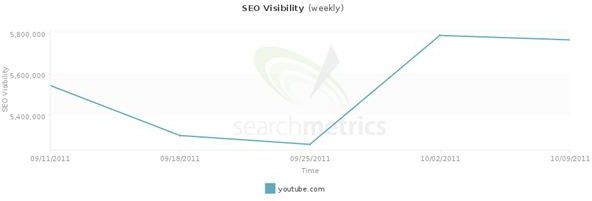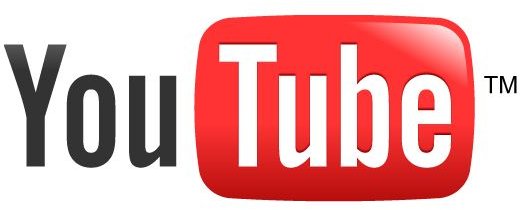Does YouTube Meet Google’s Definition of a High-Quality Site? Does It Meet Yours?
Meet the Panda
Early in 2011, Google announced that it planned to step up efforts to improve search quality. In the words of Matt Cutts, “…people are asking for even stronger action on content farms and sites that consist primarily of spammy or low-quality content.”[1] Basically, Google made it sound like it was declaring war on scrapers and low-quality sites, and planned to take measures to help push high-quality, original content higher in search engine results. Not long after that, the Panda was unleashed.
Not familiar with the Panda? That’s Google’s name for the search algorithm that was initially launched in February 2011. Over the last few months, this algorithm has been tweaked and re-run a number of times, but Google maintains that its focus is still the same – to make “quality” a major factor when determining search engine rankings.
Panda Loves YouTube

Since its release, the Panda algorithm has sparked tons of controversy with heated debates and editorials on both sides of the fence. Every time it seems like those debates are starting to die down, Google “updates” Panda – which shifts search engine rankings again and reignites a lot of those dying fires. For those interested, Matt McGee has a list of all Panda updates and it can be found here.
One of the major debates centers on whether or not Google is pushing its own sites up in search engine rankings via the Panda updates. For instance, YouTube seems to be more visible than ever before in Google search results. In fact, after the recent Panda 2.5 update, Searchmetrics reported that YouTube appeared to gain a 10% increase in SEO visibility.[3] (See the graph to the right.)
Of course, that doesn’t necessarily mean that something sneaky is going on. Maybe YouTube just meets Google’s definition of a high-quality site. Then again, it’s easier to meet those qualifications if you’re the one who defined them in the first place.
Still, it’s pretty hard for Google to completely defend itself here without releasing the specifics of its algorithm change or giving any kind of guidelines on what it considers a quality site. Oh, wait a minute…
Google’s Quality Meter
No, it’s pretty much a lock that Google is never going to release exactly what data is used in its ranking algorithms. After all, that’s Google’s secret recipe, even if it does change from time to time. Plus, there’s always the concern that some people will take that information and use it to game the system by artificially promoting bad content – which would defeat the reasons for changing the algorithm in the first place.
However, in an effort to be more transparent and help explain Google’s definition of a high-quality site, Amit Singhal made a pretty detailed post on May 6, 2011 to help others “step into Google’s mindset.”[4] This post includes 23 questions to ask when trying to determine the quality of a web page or an entire site. I’m not going to hit every one of those questions, but I do want to look at a few and how they relate to YouTube.
The Questions

Note: In many of these questions, I’m replacing the original word “article” with “video” since I’m talking about YouTube.
Would you trust the information presented in this video?
Erm, this really depends, but for the most part, I’m going to say no. The answer to this question is really going to depend on the type of video. If it’s offering financial advice or health information, my trust level is probably going to be pretty close to zero. On the other hand, if it’s a video from Corel explaining how to use a new software feature, chances are I’ll trust it just fine – assuming I can replicate the steps and get the same results.
Does the site have duplicate, overlapping, or redundant videos on the same or similar topics with slightly different keyword variations?
Short, easy answer: Yes, on all counts.
Does the video provide original content or information, original reporting, original research, or original analysis?
Sometimes, maybe. Should I include all the obvious copyright infringements of television and movie recordings when answering this?
How much quality control is done on content?
Okay, so YouTube does sometimes take down flagged content, but for the most part it’s a free-for-all. Anyone can post anything on YouTube, and there’s not really any quality control unless there are a lot of complaints after the fact – even then, the complaints may not be addressed unless it’s a high-profile issue.
Is the content mass-produced by or outsourced to a large number of creators, or spread across a large network of sites, so that individual pages or sites don’t get as much attention or care?
Yes – and I’m not sure how anyone could debate this. Anyone can upload a video to YouTube on any topic at any time.
For a health related query, would you trust information from this site?
There may be some exceptions, but in general, the answer to this is a resounding no.
Is this the sort of page you’d want to bookmark, share with a friend, or recommend?
This is an interesting question, because it really depends on the particular video. I love to share entertaining things from YouTube – you know, like cutesy kitten movies or the latest funny commercials. Sometimes, I’ll even recommend specific tutorials, especially if they were created by the developers of the software in question. On the other hand, I’d never recommend any YouTube video related to finances, health or other similar category.
Does this video have an excessive amount of ads that distract from or interfere with the main content?
Sometimes – this is another one that seems to really depend on the video’s author. Some of the videos have so many embedded advertisements that the ads are the main content. In fact, there are a lot of cases where videos have been created simply to take advantage of YouTube’s high search rankings. Then, when you start watching them, the only thing you see is a message to go to another site to access the content you thought you were going to see in the video!
Would you expect to see this article in a printed magazine, encyclopedia or book?
To make this question more relevant, I’m going to interpret it as, “Would you expect to see this video on television, in an online class or on a training DVD?” In general, my answer is no. As with some of the other questions, there are definitely exceptions, like when very popular videos are shown on CNN. Still, I wouldn’t expect to see most YouTube videos any place other than YouTube.
Even though I don’t give my answers to all 23 questions from Singhal’s post here, my responses to the others are basically the same. So, if these are the questions to use as a guide, I don’t consider YouTube a high-quality site. But apparently Google does, so what’s the point of asking these questions again?
On the other hand, all this doesn’t mean I’m anti-YouTube. To be honest, I’ve been known to spend quite a bit of time there (too much actually!), watching movie trailers or other people’s funny animal videos.
But, here’s the kicker. When I’m in the mood for some YouTube entertainment, I don’t search for videos on Google. Instead, I go directly to YouTube and use that site’s search feature. To go along with that, when I’m searching for something on Google, I pretty much ignore any YouTube results that pop up, because that’s not what I’m looking for and they’ve never seemed relevant to my searches in the past.
That leads me to my next point…
It’s All About Relevance
At this point, it may sound like I’m digressing a bit, but I’d like to go back and talk about Google’s claim to be concerned with the quality and originality of search engine results. As standalone variables, I’m pretty sure that Google doesn’t care about quality and originality – and neither do searchers. The two things that really matter to people are relevance and speed: Finding the answers to our search queries and getting those answers as fast as possible.
This doesn’t mean that quality and originality aren’t important. On the contrary, these two measures are critical since they’re often indicators of relevance. And, if the most relevant results to our searches are listed first, then we can get the answers we want faster. Still, relevance is the key measure.
So, instead of asking whether or not YouTube is a high-quality site when determining how its videos are ranked in Google, I think it’s better to ask if it’s a relevant site for general search queries. For me, it’s not – but again, that’s because I go straight to YouTube and search there if I’m looking for a video result. When YouTube results show up in my general Google searches, they just clutter up the page.
What about you? How often do you click on a YouTube video when searching in Google? Even more importantly, how often are you glad you did?
References
- YouTube Logo: Wikimedia Commons
- [3] Tober, Marcus. “Google Panda USA Update 2.5,” http://blog.searchmetrics.com/us/2011/10/01/google-panda-usa-update-2-5/
- Panda Image: sxc.hu/hortongrou
- [4] Singhal, Amit. “More guidance on building high-quality sites,” http://googlewebmastercentral.blogspot.com/2011/05/more-guidance-on-building-high-quality.html
- [2] McGee, Matt. “Confirmed: Google Panda 2.5 Update Arrived This Week,” http://searchengineland.com/confirmed-google-panda-2-5-update-arrived-this-week-95222
- [1] Cutts, Matt. “Google search and search engine spam,” http://googleblog.blogspot.com/2011/01/google-search-and-search-engine-spam.html
